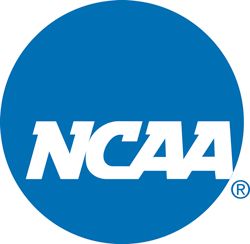Top Class Actions’s website and social media posts use affiliate links. If you make a purchase using such links, we may receive a commission, but it will not result in any additional charges to you. Please review our Affiliate Link Disclosure for more information.

Both cases revolve around the use of player likenesses in video games and on television for which they are not currently compensated. However, the plaintiffs’ class action lawyers in one case argue the settlement should not apply to them because of differences in legal issues.
U.S. District Judge Claudia Wilken last week provisionally approved the $60 million settlement in the case lead plaintiff Samuel Keller filed against EA Sports and the NCAA regarding college football and basketball games made by the entertainment giant. The differences between that case and one filed by former basketball player Ed O’Bannon are more different than the defendants’ legal team made them out to be, the judge noted.
While it is true that some class action lawsuit settlements, including those in licensing cases, may extend to claims that are raised in other litigation, Wilken noted in the hearing for the Keller settlement agreement that the more widely known O’Bannon case focuses on more expansive issues, including whether the NCAA can be considered a monopoly, as well as TV rights and related compensation beyond games from EA Sports.
A bench trial for the O’Bannon case has already begun. It is not the only case that could have significant bearing on how the NCAA operates in its relationship with student athletes. Another class action lawsuit seeks to lift the cap on compensation to players, arguing that not only is the NCAA a monopoly that should be subject to antitrust law, but that scholarships, also known as “grants-in-aid” do not even cover the full costs of attending college.
In that lawsuit, the lead plaintiff alleged that he was forced to take out a loan in order to pay to attend and noted the five “power” conferences that generate the most revenue for schools often make millions of dollars even as players must work or find money from other sources in order to continue going to school thanks to a “perpetual horizontal price-fixing agreement.”
The plaintiffs are represented by class action lawyers from Hagens Berman Sobol Shapiro LLP, Paynter Law Firm PLLC , The Lanier Law Firm, and other practices.
The NCAA Student Athlete Licensing Class Action Lawsuits are Samuel Keller, et al. v. Electronics Arts Inc., et al., Case No. 09-cv-01967, and Ed O’Bannon Jr., et al. v. National Collegiate Athletic Association et al., Case No. 09-cv-03329, both in U.S. District Court for the Northern District of California.
ATTORNEY ADVERTISING
Top Class Actions is a Proud Member of the American Bar Association
LEGAL INFORMATION IS NOT LEGAL ADVICE
Top Class Actions Legal Statement
©2008 – 2024 Top Class Actions® LLC
Various Trademarks held by their respective owners
This website is not intended for viewing or usage by European Union citizens.














